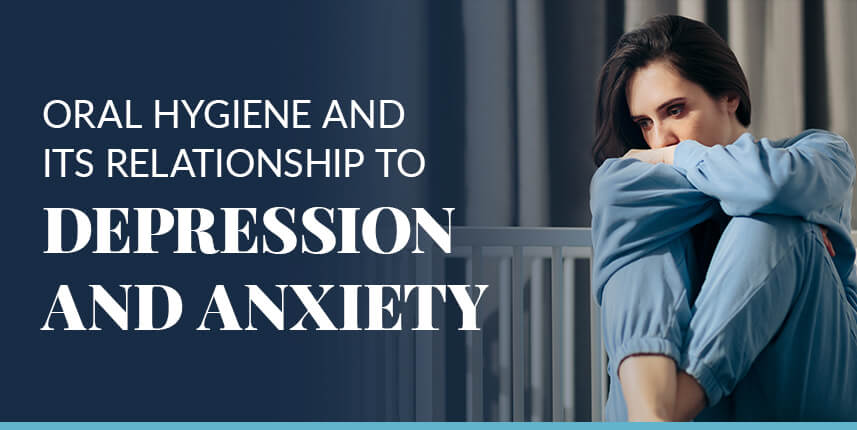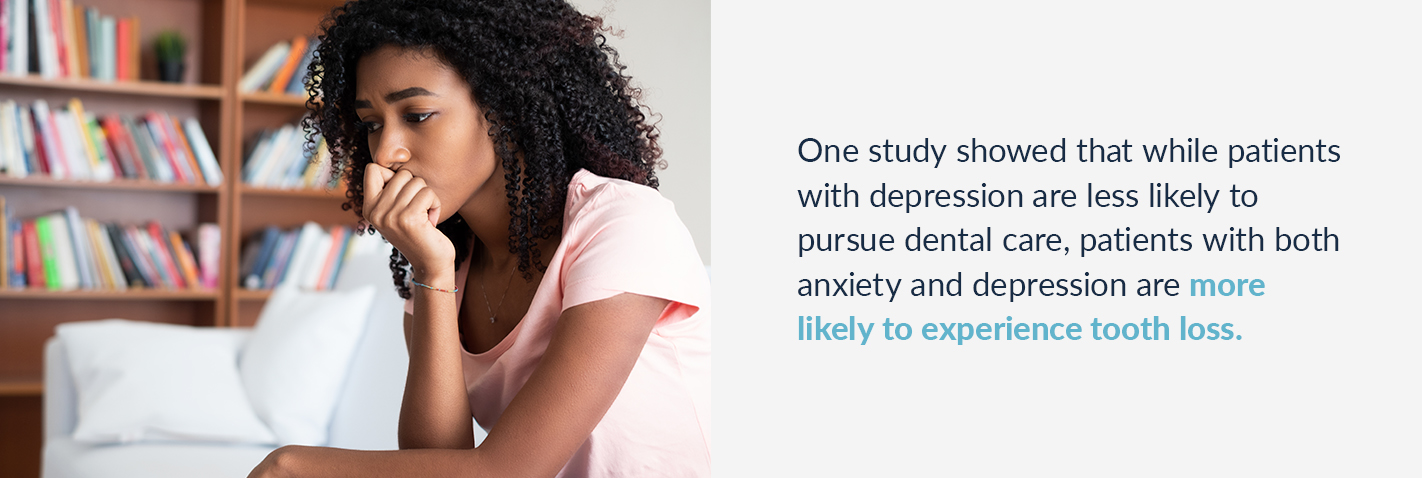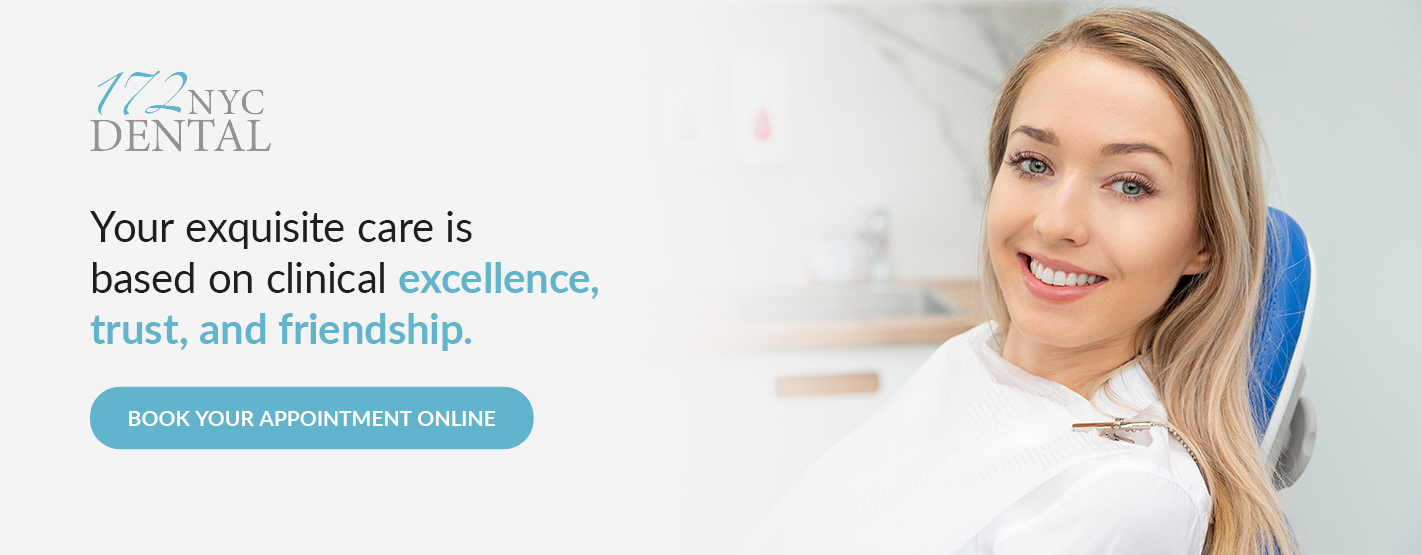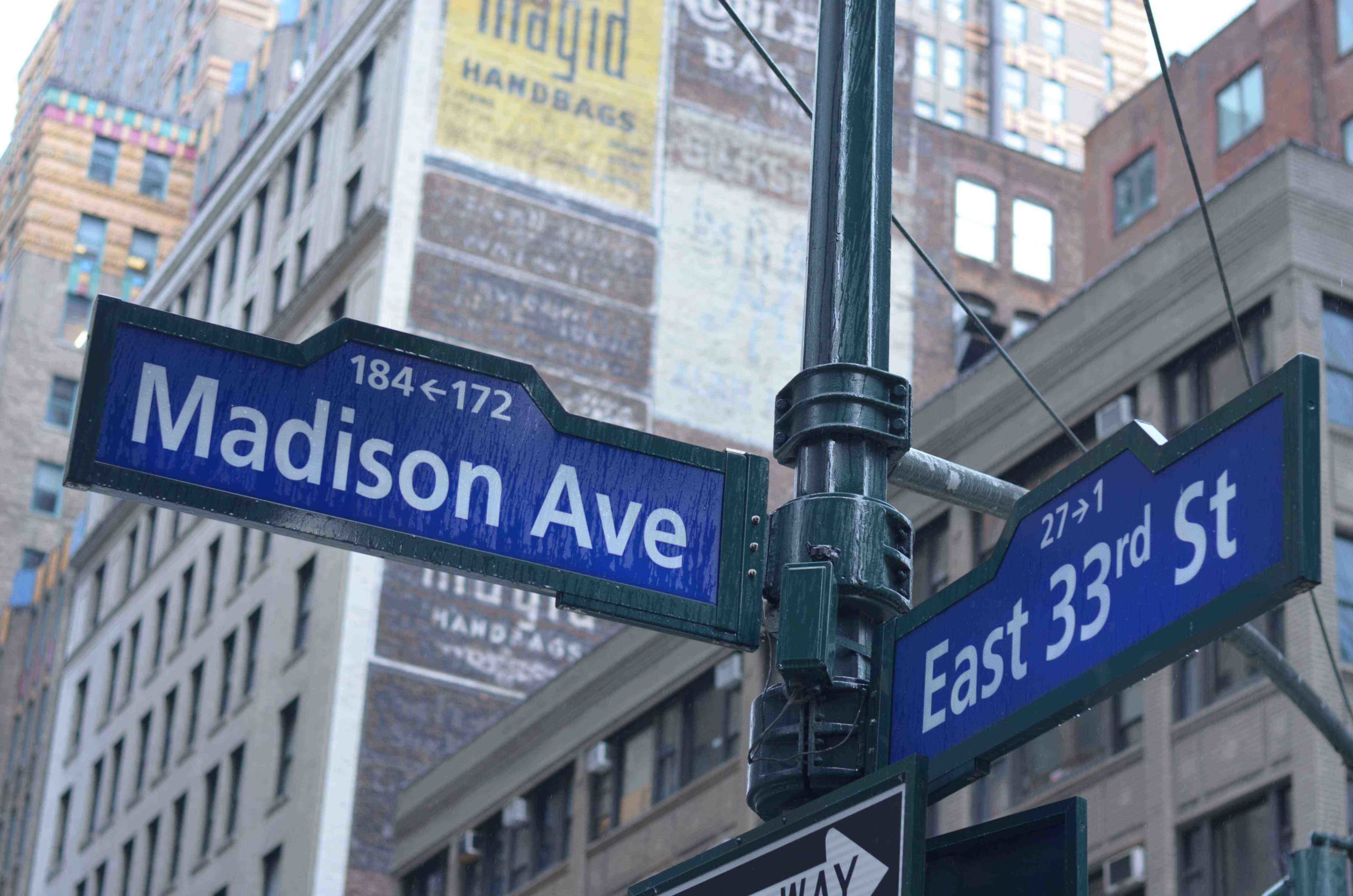
- Signs Of Depression in Your Oral Health
- Frequently Asked Questions About Depression and Oral Health
- How Can I Manage My Depression and Mental Health?
- 172 NYC Dental
Many people during these stressful times are suffering from mental health issues. These emotional problems affect hundreds of thousands of people in America and can directly affect how we take care of our teeth and gums, linking our oral health and mental health. In particular, depression and anxiety are two serious mental health conditions that can impact our overall health, including how we care for our oral health.
If you or a loved one is having thoughts of harming yourself or others, reach out to a mental health crisis support center or call 911.
Continue reading to learn more about how dentistry and mental health are connected.
Main Issues for Those Suffering With Mental Illness
Common mental illnesses such as depression and anxiety may lead to some of the following issues:
- Low energy: Reduced energy leads to neglect of oral hygiene practices. This decrease in health vigilance can be a significant contributing factor to gum disease and cavities.
- Hard brushing: The frustration and anguish caused by certain mental health disorders may result in patients brushing their teeth too roughly, scrubbing away at the protective coating of enamel on the surface.
- Medical anxiety: Dental phobias or social anxiety can make patients avoid going to the dentist even when they have tooth pain or sensitivity.
- Eating disorders: Disordered eating patterns that coincide with depression and anxiety, such as bulimia, can lead to tooth decay from abnormally frequent exposure to acidic vomit. Sufferers of eating disorders might also experience low levels of vitamins and minerals from a lack of adequate nutrition. The teeth require calcium and other minerals to stay strong and healthy.
In addition,
medications that treat depression and anxiety can lead to several conditions of the mouth, including:
- Xerostomia, or dry mouth
- Bruxism, or teeth grinding
- Hypersalivation
Some medications can interact with local anesthetics, antibiotics, and nonsteroidal anti-inflammatory drugs like Advil. These include:
- Tricyclic antidepressants (TCAs)
- Selective Serotonin Reuptake Inhibitors (SSRIs)
- Monamine Oxidase Inhibitors (MAOIs)
Signs of Depression in Your Oral Health
Do you struggle with depression and frequently feel like you have less time than you need to care for your teeth? Studies show that depression and stress measured by the amount of cortisol secreted in a patient’s saliva have an association with periodontal diseases. Here are some signs depression might be affecting your oral health:
- Memory lapses: You are unable to remember how long ago you last ate or when you last brushed your teeth.
- Fatigue: You frequently feel too tired to brush or floss.
- A poor diet: You find yourself frequently consuming the same kinds of foods that are convenient and require little preparation but might offer less than adequate nutrition.
- A dry mouth: You produce less saliva than expected and often feel parched.
If you recognize more than one of these signs, your depression might be negatively impacting your oral health. The best way to determine whether you need additional support is to speak to a doctor or counselor who can prescribe antidepressants or offer other treatment options.
Frequently Asked Questions About Depression and Oral Health
What is Oral Anxiety?
Oral anxiety refers to the affects mental health problems have on your oral health. If you’re concerned that your hygiene is deteriorating because you might have depression or your depression has worsened, you might be wondering what you can do. The answers to these questions should not be treated as a substitute for professional medical advice.
The following questions are common for those who might be struggling to care for themselves:
Is Not Brushing Your Teeth a Sign of Depression?
If you or someone you know infrequently brushes or flosses, depression might be a contributing factor. However, other causes of poor oral hygiene could be a lack of time or inadequate rest due to a busy schedule. Another cause might be the patient’s lack of understanding of the health benefits that brushing provides, which is especially common for children and teenagers. An individual’s potential depression must be evaluated in a healthcare setting before a diagnosis can be made.
Did Depression Ruin My Teeth?
Depression can lead to tooth decay and gum disease as a secondary consequence. The primary symptoms of depression, such as fatigue and lowered concentration, cause patients to forget or neglect their oral health. Depression often correlates with oral health problems.
How Can I Manage My Depression and Dental Health?
Make sure that you seek care from the appropriate medical professionals for both. Having access to adequate dentistry and mental healthcare are both vital for your overall wellbeing as a patient. It’s important to seek care because depression and oral health issues can become severe if left untreated.
If your depression leads you to forget to brush your teeth, consider these tips:
- Leave a sticky note on the bathroom mirror to remind yourself to brush whenever you go to the restroom.
- Invest in an electric toothbrush, which can reduce a little bit of the effort required to brush your teeth.
- Set a reminder on your phone or smart home device to brush your teeth twice a day.
- Brush your teeth in the shower — this way, you can accomplish two things at once.
Signs of Anxiety in Your Oral Health
Anxiety tends to make patients dread seeing a dentist for routine appointments or getting teeth cleanings. If you struggle with anxiety, here are some common signs that you might notice:
- Heart palpitations: When you think about going to a dentist, talk about going to your appointment, or arrive for your appointment, you can feel your heart racing.
- Panic attacks: You experience severe panic that causes you to cancel your appointment or fail to show up.
- Elevated blood pressure: It is unlikely that your blood pressure will be measured at your dentist’s office, but if checked, your blood pressure is higher right before your appointment and returns to normal after your anxiety passes.
- An increase in stress: You are prone to anger when you know you have to go see your dentist or hygienist and lash out for reasons unrelated to your dental appointment. The increase in your cortisol level due to the boosted activity of your sympathetic nervous system can trigger a fight-or-flight response. This is common for many patients with anxiety.
If your anxiety is interfering with your ability to receive adequate oral health care, it is best to speak to a psychiatric professional about ways that you can manage your anxiety. You can also speak with a dentist who has experience with dental phobias about what the office can do to put you more at ease.
Frequently Asked Questions About Oral Anxiety
Oral anxiety refers to the affects mental health problems have on your oral health. The following are questions that anxiety patients often have about how to care for their teeth while they also cope with their mental health. The answers are intended to be helpful to you but should not be used as a replacement for professional medical advice.
Can Anxiety Cause You to Avoid Brushing Your Teeth?
Anxiety can cause avoidant behavior in patients who are triggered by fears of having their teeth examined or worked on. However, anxiety more commonly causes patients to avoid coming into a dental office rather than not brushing their teeth, unlike depression.
Can a Mix of Anxiety and Depression Interfere With My Dental Care?
Many patients struggle with both depression and anxiety, and these conditions can both contribute to the neglect of oral hygiene. One study showed that while patients with depression are less likely to pursue dental care, patients with both anxiety and depression are more likely to experience tooth loss. Multiple factors causing a patient to avoid the dentist’s office lead to higher vulnerability.

How Can I Overcome My Fear of Going to the Dentist?
Some ways you can try self-managing your anxiety:
- Communicate your fear to your dentist and the assisting staff when you make your appointment, and they can accommodate your concerns by adapting your treatment.
- Call your dentist’s office to ask questions about a procedure you need.
- Avoid drinking caffeine before your appointment, which can mildly influence your sympathetic nervous system and make you feel jittery.
- Bring your earbuds and listen to calming music in the waiting room before — and if the provider allows, during — your procedure.
- Go to an accredited facility with highly-rated doctors and good reviews.
- Journal a list of your specific fears and brainstorm ways that you can make each point more comfortable or manageable.
Maintaining Oral Health through Depression and Anxiety
At 172 NYC Dental, we have developed a multiphase approach to help those going through tough times to maintain proper oral health.
We believe in developing a commitment to self-care, or the ability to take care of ourselves in physical, emotional, and spiritual means to achieve better overall emotional health. Dental care is a part of self-care. Clean teeth and healthy gums will make us feel that we are taking care of ourselves, and that will equate to feeling happier and even less anxious about seeing the dentist.
Treating depression or anxiety can take months of carefully following a treatment plan and directions from health providers helping work on the case. That is why we want to start small. We do not want our patients to be overwhelmed with strict demands or orders. Getting healthy, whether it be emotional or dental in origin, is a mosaic. Several small modifications in our lifestyle can have a very big effect.
Below is a list of good suggestions to start the process of achieving long-lasting oral health. Consider what works best for you from the following list:
1. Diet
To improve the quality of your diet, try the following:
- Reduce your intake of refined sugars and sugary drinks.
- Eat your daily recommended value of fruits and vegetables.
- If you struggle with cooking meals, buy small protein-packed snacks.
- Take a daily vitamin.
- Avoid restricting whole food groups for the most balanced diet.
2. Social Interaction
For help with social anxiety or social limitations caused by depression, try:
- Exercising, such as going out for short walks.
- Getting plenty of sunlight.
- Visiting your dentist more often to familiarize yourself with the environment.
- Meditating to reduce your stress levels.
- Treating any substance use disorders.
- Seeking psychological care from a trained professional.
3. Home Care
Those who struggle with their mental health are sometimes too depressed to brush their teeth. Having an oral care routine at home can prevent long-term damage to teeth and gums. Consider the following steps for your at-home dental care:
- Brush two times daily for a period of two minutes each time.
- Use a low abrasion level toothpaste with fluoride that has a long shelf life.
- Floss or use an oral water pick at least once a day, preferably before bedtime.
- Use a fluoride rinse once per day.
- Swish your mouth with clean water after eating meals.
4. Dental Office Visits
To ensure you’re visiting the dentist often enough:
- Make check-ups more often, such as 3-4 times per year.
- Develop a relationship with the dentist based on trust and proper communication.
- Ask for nitrous oxide if you suffer extreme panic attacks or anxiety.
5. Smiling
Smiling releases endorphins like dopamine and serotonin. These chemicals make us feel happier and less stressed, and they can improve our mood and increase our positive thoughts. A beautiful smile leads to a beautiful life.
Schedule an Appointment With 172 NYC Dental
Communication that builds your trust and educates you about your oral hygiene is of paramount importance. If you suffer from depression or anxiety and need a caring dental provider, contact 172 NYC Dental and enjoy a complimentary consultation. More importantly, take the first small step to feel better and enjoy a beautiful smile inside and out.
At 172 NYC Dental, we treat an entire person, not just their teeth. Your exquisite care is based on clinical excellence, trust, and friendship. If you are experiencing a dental emergency, don’t procrastinate — book your appointment online today!









